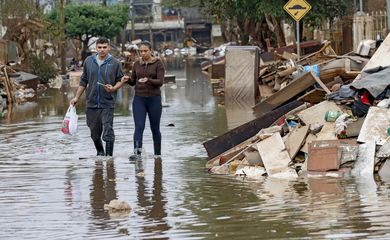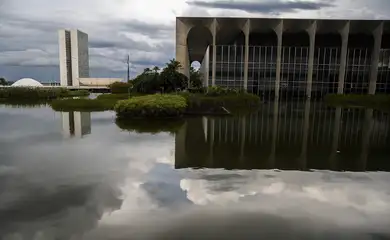Brazil assumes BRICS presidency as bloc expands

On Wednesday (Jan. 1), Brazil assumed the BRICS rotating presidency for the fourth time, coinciding with the bloc's expansion to include at least nine new members by 2025. Brazil aims to prioritize global governance reform and sustainable development with a focus on social inclusion.

Under the motto Strengthening Cooperation in the Global South for More Inclusive and Sustainable Governance, Brazil faces key challenges, including integrating new members and advancing the development of a local currency payment system to replace the dollar in trade among member countries.
In early 2025, the BRICS bloc will welcome at least nine new members: Cuba, Bolivia, Indonesia, Belarus, Kazakhstan, Malaysia, Thailand, Uganda, and Uzbekistan, as confirmed by Russia via the state news agency Tass. Russia held the BRICS presidency in 2024.
Professor Paulo Borba Casella, an international law expert from the BRICS Study Group (GEBRICS) at the University of São Paulo (USP), told Agência Brasil that a key challenge for the bloc's presidency is establishing a cohesive dynamic for the expanded BRICS.
“There are over a hundred working groups in a wide range of areas. We'll have to see how Brazil can contribute to making the BRICS function in its new configuration, with ten member states and a dozen more associated states. How will it work? No one has seen it yet, and no one knows,” Casella pondered.
In total, thirteen countries have been invited to join BRICS. Nigeria, Turkey, Algeria, and Vietnam are also expected to confirm their participation. The decision to include new members was made in October 2024 during the 16th BRICS summit in Kazan, Russia, where the new category of bloc partners was established.
The Brazilian Foreign Ministry has yet to confirm in which category the nine countries will join the group—whether as partners or full members. Unlike full members, partners can participate in meetings and events but do not have voting or veto power, as BRICS decisions are made by consensus.
By 2024, the bloc had already welcomed five new full members, bringing the total to ten countries. Previously consisting of Brazil, Russia, India, China, and South Africa, BRICS expanded in the past year to include Iran, the United Arab Emirates, Egypt, Ethiopia, and Saudi Arabia. Although Saudi Arabia has not officially joined the group, it has participated in all of the meetings.
Importance of BRICS
Professor Maria Elena Rodríguez, coordinator of the BRICS research group at the Pontifical Catholic University of Rio de Janeiro (PUC), noted that during Brazil's last presidency of the bloc, the government did not place much emphasis on BRICS—an approach she expects to change this year.
“The previous summit under the Brazilian presidency took place during the Bolsonaro government, and it was marked by a lack of significance and ambition. Now, BRICS is much more consolidated. Brazil must be well-prepared and demonstrate concrete progress, such as in negotiations involving local currencies. We need an agenda that helps elevate both Brazil and the Latin American continent within BRICS,” she said.
Trump and BRICS
The initiative to replace the dollar with local currencies has prompted US President-elect Donald Trump to threaten countries that abandon the American currency with higher taxes on their exports.
According to Paulo Borba Casella, a professor at the University of São Paulo (USP), Trump cannot impose tariffs on all BRICS countries without harming the US economy. “He's playing to the domestic electorate to make a point, but it's nonsense because the international system doesn't function solely through threats,” he said.
Given Trump's behavior, Casella believes that forums like BRICS are gaining importance. “It may be the role of BRICS to counter a rather petty and crude discourse from the point of view of international relations, such as Trump's style,” he added.
BRICS has emerged as an alternative platform for dialogue and the integration of countries dissatisfied with the US-led, dollar-dominated international order. With its ten current full members, BRICS represents over 40 percent of the global population and 37 percent of the world's GDP by purchasing power, surpassing the economic influence of the G7, which includes the world's most industrialized nations.
A key demand of the group is the reform of global governance, calling for greater representation of Asian, African, and Latin American countries in institutions such as the UN Security Council, the World Trade Organization (WTO), and financial organizations like the World Bank and the International Monetary Fund (IMF).





